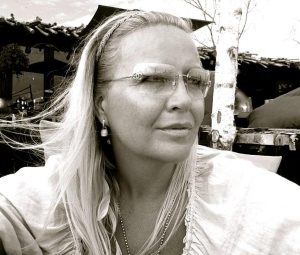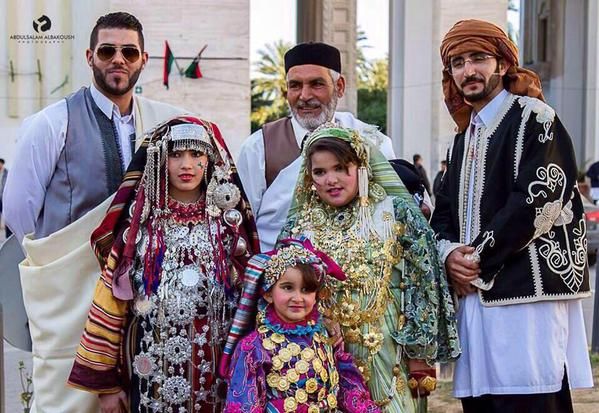by Mel Ve
Having an avid interest in anthropology, ancient history, cultures and all the trappings thereof, I have for many years now, been wanting to tell this story, a story about the deliberate destruction of one of Africa’s most flourishing economies, being Libya.
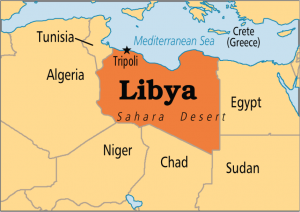
Being born in South Africa, where I lived for 23 years, I have an immense fascination with Africa and the many wonderful cultures that have flourished, and been deliberately destroyed out of being a threat to the Globalist’s totalitarian control agenda. Much like South Africa, which flourished in the 1960’s, Libya, under Gaddafi’s leadership, had become one of the fairest and culturally progressive countries in Africa, and of the Islamic world, being rich in resources, and on the verge of launching a gold backed African currency, the Dinar.
Gaddafi was a man much loved by his people for what he did for them, whilst the western media demonised him and denounced him as a dictator, even blaming him for terrorist attacks that were not of his making.
Below is my interview with a lady I came to know as Miriam, and who is a Libyan woman in her 60’s, and who was brave enough to share her views, the intelligent observations of someone from Libya.
INTERVIEW
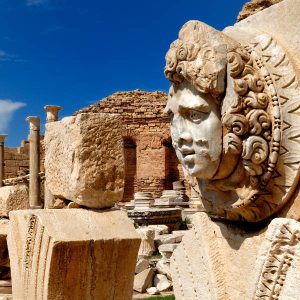
MEL: Tell me a bit about who you are and your background
MIRIAM: My background?… My dad is Libyan, my mom is a foreigner. I was born in Tripoli.
MEL: So you are now in Athens?
MIRIAM: Yes I am.
MEL: And when did you leave Libya?
MIRIAM: I haven’t left Libya. I have never left Libya on the whole. I go in and I go out. I travel. I was supposed to travel with my Dad sometime around the 20 April back to Tripoli and stay there until the beginning of June. So we have relatives there. We have our business there. So it’s not that I am staying in Athens just for the sake of it, but I do have European residence because since 1983, I have been working in Europe. Plus my Mom was European, so it was easy for me to get residence.
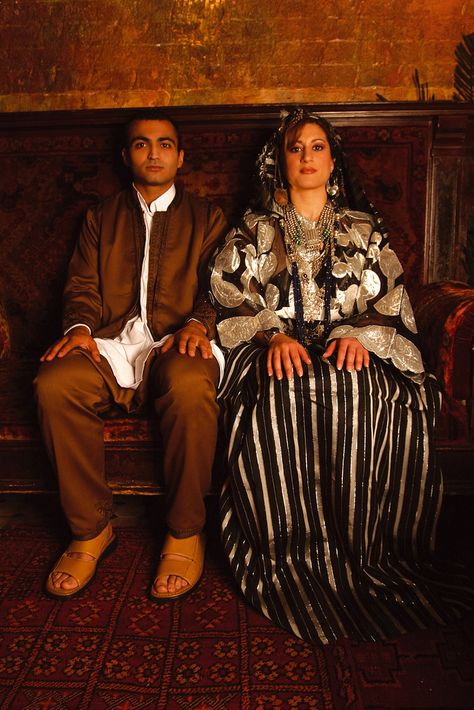
MEL: So you were living in Libya before the invasion, so first off, I just want to hear a little bit about your experience of what life was like living in Libya back then. I have been told many great things about the social security and support you got from the government under Gaddafi, which is unlike anything I have heard of in other African countries. As an outsider looking in, we were never aware of this. I am South African, so also from Africa, and we had none of that sort of social support down there. Would you mind sharing a bit about that?
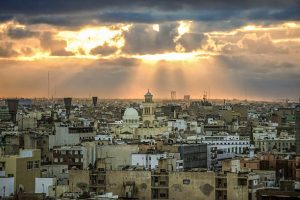
MIRIAM: We have to go back quite a lot, because when Gaddafi took over in 1969, Libya was very poor, although the King did try very hard to do a lot of things at that time. Libya had just gotten its independence in 1955 I think. I was not born then, but from stories told to me by my Dad and my Grandma, things were very tight and very hard, and from what I gathered from reading history of that time, there were only ten families that were rich, and the rest of the Libyan families were very poor. The King, who was a very respected and holy man, tried his best, and of course the oil did cause an economic boom. But it was not fast enough. So when the revolution happened in 1969, the economy did start to boom in many ways. The people who lived in Tripoli, we did not like Gaddafi at the beginning. We thought of him as a peasant. We were snobs and we are still snobs. Gaddafi took over everything by storm and we were amazed, but at the same time, we did not know what was happening. So in 1969, a lot of things changed gradually but relatively fast. In 1969 I was around 10 years old, so I could see a lot of things that were changing to the benefit of the Libyans. In 1969, 90% of Libyans were illiterate. The first thing Gaddafi did was to implement a law that all people, irrespective of age, would have to learn to read and write. He did not want people to sign with their thumb print anymore. They would have to go to school and learn the alphabet. That was the first thing Gaddafi did.

The second thing he did was he forced all families to make all girls go to school. Back then that was something that was unheard of in the Islamic / Arab world. Then slowly, slowly things started to happen. Gaddafi cut the consumption of alcohol completely, whereas before, it was allowed, just not on Fridays. Alcohol was not served to you on Fridays if you were a Libyan.
In 1972, the Willis Air Force Base was shut down and all the American personnel were given 48 hours to leave. The staff in the English base in Benghazi, were also given 48 hours to leave. England and the United States were not happy, because Gaddafi was brought in by the Central Intelligence Agency, specifically for the purpose of the revolution. That is something that nobody in the western media has ever said. They all thought he was brought in by the Soviet Union. He was not. This is publicly known. The previous King of Saudi Arabia did announce it in the Arab League discussion. He said it for everybody to hear. It is not something that I am announcing. But the western media will not say that.
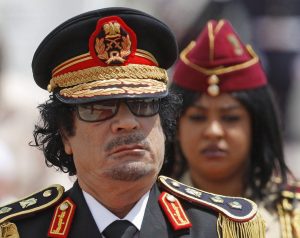
Gaddafi was a scapegoat for the westerners for many reasons. As a young man of 28 years old when he took over, he maybe did not know the game, the political game. He maybe did not know diplomacy. But one thing is for sure, he did love his people. He loved his country. Not everybody was happy with him. Some of his advisors were very good. Some of his advisors were corrupt. But if we put ourselves in his shoes at his age, I think everybody would make the same mistakes. But he did a lot for his country. My family was harmed by his decisions. He ruined us financially. Not only my family, but a lot of families. But we stuck with it because my Dad did not want to leave Libya. He had his relatives. He had his Mom. My grand dad was paralysed from the neck down, so there was no way we could leave Libya, so we were stuck so we had to stick it out. But in the long run, up until the war, we came out winners, not financially, but in loving our country the way we do love it. Actually, I could not understand why they used Gaddafi as a scapegoat. Gaddafi had nothing to do with the Pan Am flight 103 that became known as the Lockerbie Bombing. Gaddafi had nothing to do with the Berlin disco bombing. I was in Berlin at the time in 1986.
MEL: Why did the western world blame Gaddafi? There was no logical connection to Gaddafi, so why was he blamed?
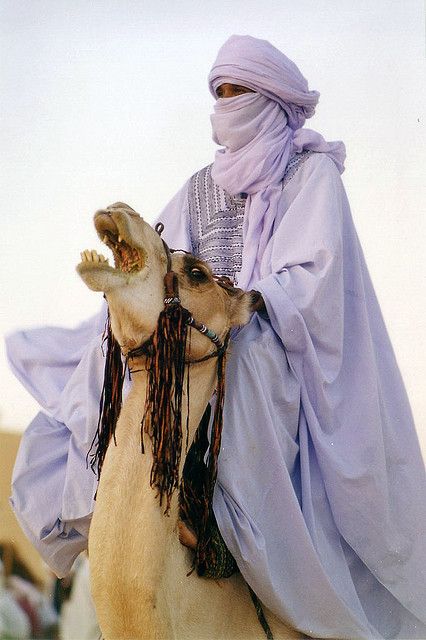
MIRIAM: Well I will tell you what my feeling is that Gaddafi was not well liked by outsiders and to the Arab world. He gave a lot of freedom to women, which is unheard of, especially for the Shias. Gaddafi made it law that a woman was free to marry only after she had turned 18 years old. Women were not allowed to marry before that age, and if parents forced a woman to marry before the age of 18, they would have to explain to the Imam the reasons why, and the girl would be taken aside and would be questioned as to whether she was being forced into the marriage or not. So the parents did not want to have this hassle, and so they waited until she was 18 to get married. That was one thing. This is unheard of in the muslim communities.
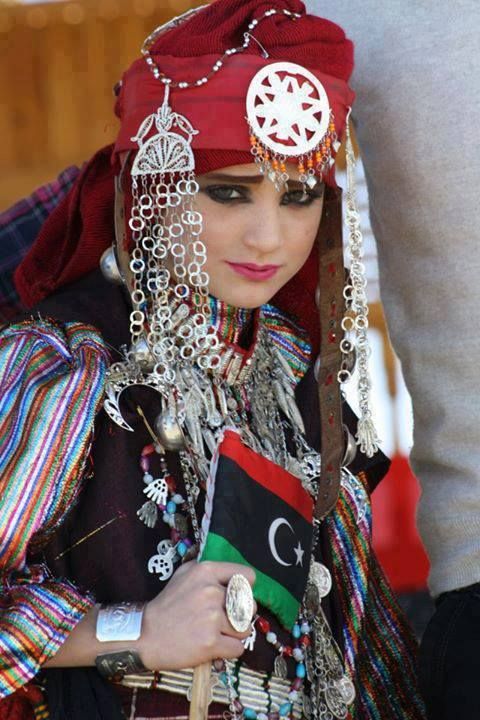
A woman in the Muslim communities cannot have land of her own. By law in Libya, it was made possible under Gaddafi’s government. Women were given the right to travel. This is unheard of. And she could travel alone. This is also unheard of in the Muslim communities. This angered the Arab and Muslim communities, as they were worried that their women would get ideas, and would have a revolution in their countries for their freedoms. Women in Libya could drive. They could get their driver’s license. In Saudi Arabia, women cannot drive without a driver, and they cannot travel without a man accompanying them. In Iran, it is the same. It is only in a few countries that women can travel alone in the Arab countries. So in Libya, a woman was pretty independent, and that was a thorn in the side of the Arab societies. A woman in Libya, she could live alone. That is also something that they did not like. So a lot of the freedom that was given to the women, was totally against the Arab societies and countries.

Now coming to the west and why they did not like Gaddafi. One of the reasons was because Gaddafi gave the people of Libya – free electricity, free water. We only paid an amount of a hundred euros once a year for the maintenance of the infrastructure. Gaddafi explained that electricity and water was a gift from God and it is not something that the people should have to pay for. Now imagine in Portugal, in Italy, in England and in the United States, they hear that an African country has decided that the people do not have to pay for electricity and water. Calculate how much money private corporations lose… just think about it. Here in Greece, where I am now, every two months, I pay around 300 euros. Every four months I pay about 70 euros for water. In the United States, if it rains and you collect the water and use it for your plants or washing your car, you are issued with a fine, because you are depriving private corporations of money. So understand that the philosophy that Gaddafi was using was questioning why should you pay for water that comes from the rain and the rivers. So in Libya, we were not paying for electricity and water. The only thing we paid for was the telephone bill, the normal landline. The only people who were paying electricity bills were the companies, shops, factories and businesses. But private households were not paying any electricity and water. This the westerners did not like. All the ideas that Gaddafi had – were against western beliefs, and they did not like it, such as each person has the right to have a home. Try giving this mantra to the west.
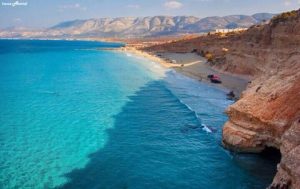
They would kill you for that mantra that even a homeless person has the right to have a home. Gaddafi said it, and he did it. Until 2011, everybody in Libya had a home. After that, Gaddafi said that your children can buy a home, we will finance half of it, and the other half is financed without interest for 20 years. The Gaddafi government financed 50% of it, and the other half was borrowed from the banks as an interest free mortgage for 20 years. If you paid the mortgage off before 20 years, you did not pay any interest to the banks. Any student who had been studying abroad had all their studies and expenses paid by the Gaddafi government, including extra given for pocket money, so that students did not have to work, only study. When that student came back to Libya, and was without a job, they were paid minimum wage until they found a job, for as long as that took. There are many things that the west did not like, that Gaddafi did. Plus in the beginning Gaddafi was funding some groups that were against various governments. He was also supposedly involved in funding a number of acts of terrorism, but I still can’t find 100% proof of this. In fact the west was always using Gaddafi as a scapegoat.
MEL: Do you feel that he took care of his people with his policies, compared to other parts of the world?
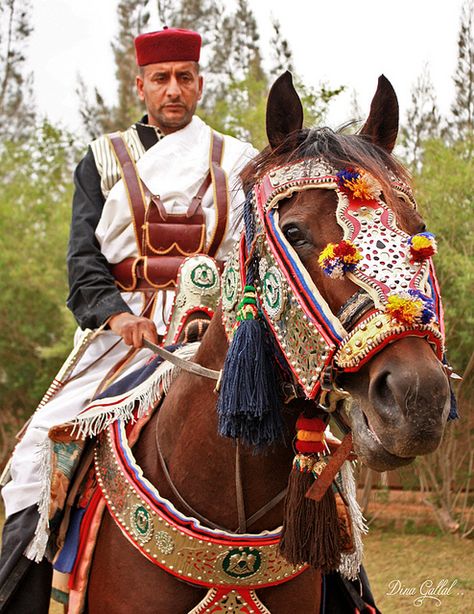 MIRIAM: Well he had a strong hold on Libya, that is true. What you need to understand is the Arab world, all the Arab states, they do not have democracy, the way you know it, the way I know it… it does not exist for the Arabs. What the Arabs understand is that you have one leader, and that is it. Whether he is good or bad, that is besides the point. If Gaddafi was bad, we would not have kept him for 42 years, that’s for sure. He had very bad PR, that is true. With all the money that he had, with all the money that the country had, he could have hired the best PR, but unfortunately he didn’t. But inside Libya, he did a lot of things. He could do better, that is true. He could have done a lot better, but don’t forget that many of his advisors were mostly corrupt and really not following orders of what he wanted them to do. It is a shame, because deep down, he really was a man of the desert. He really loved his country very much. This can also be seen by how his children fought very hard for Libya. They loved their country. And Libya paid for that. We had a trade embargo placed upon us for 13 years. If we had not had this embargo, we would have been better off than Dubai. After the embargo was lifted from 2004 until 2011, everyone was working 24 / 7, in order to open Libya up to international tourism, and the airport was going to be one of the biggest airports in North Africa, but which was then bombed in 2014.
MIRIAM: Well he had a strong hold on Libya, that is true. What you need to understand is the Arab world, all the Arab states, they do not have democracy, the way you know it, the way I know it… it does not exist for the Arabs. What the Arabs understand is that you have one leader, and that is it. Whether he is good or bad, that is besides the point. If Gaddafi was bad, we would not have kept him for 42 years, that’s for sure. He had very bad PR, that is true. With all the money that he had, with all the money that the country had, he could have hired the best PR, but unfortunately he didn’t. But inside Libya, he did a lot of things. He could do better, that is true. He could have done a lot better, but don’t forget that many of his advisors were mostly corrupt and really not following orders of what he wanted them to do. It is a shame, because deep down, he really was a man of the desert. He really loved his country very much. This can also be seen by how his children fought very hard for Libya. They loved their country. And Libya paid for that. We had a trade embargo placed upon us for 13 years. If we had not had this embargo, we would have been better off than Dubai. After the embargo was lifted from 2004 until 2011, everyone was working 24 / 7, in order to open Libya up to international tourism, and the airport was going to be one of the biggest airports in North Africa, but which was then bombed in 2014.
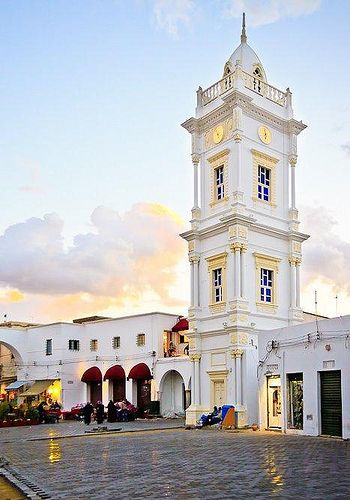
MEL: What is the exact date of when Gaddafi was deposed?
MIRIAM: He was deposed in October 2011
MEL: It is a shame, I would like to have visited Libya before the invasion in 2011.
Article and interview written and researched by
